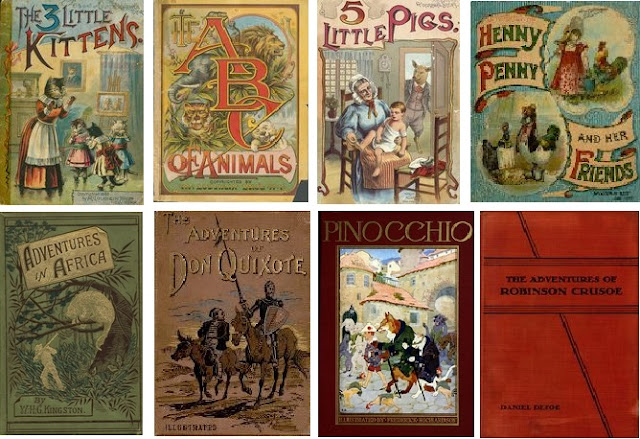Every April 27 in the last five years, to mark my birth, I host a children’s literacy event with children from different backgrounds. This year was no different, but I combined it with the launch of my new children’s storybook. This is based on my conviction that in the landscape of education in post-colonial contexts, children’s literature must emerge as a powerful medium for cultural resistance against the lingering effects of colonialism.
Through my experiences as a literacy teacher in Nigeria, I have witnessed firsthand the transformative potential of culturally relevant stories. This article draws on my journey in the classroom, particularly my time at Baban Saura and in the schools I taught, where children’s engagement with the book Sambo and Juju served as a prime example of how local narratives can inspire and empower young minds.
At Baban Saura, where I taught literacy to street children under the FLARE Project for Almajiri children, the children’s enthusiasm for Sambo and Juju, particularly the game of Okie depicted therein, was palpable. The excitement that erupted from familiar scenarios, characters, and cultural references was not just heartwarming; it underscored the significance of relatable content. The game resonated with their experiences, and through this connection, the children developed a deeper appreciation for the story itself. They saw themselves not merely as passive consumers of literature but as active participants, empathising with the characters whose lives mirrored their own realities. This is opposed to stories about girls with long blonde hair gliding in the snow.
This environment of familiarity made it easier for me to introduce the core concepts of storytelling tailored uniquely to the children. By weaving their names and recognisable local landmarks into the narratives I crafted, I noticed their levels of engagement and excitement soar. Children would sit upright, eyes wide with anticipation as they heard tales starring themselves or exploring places they frequent. This strategy did more than entertain; it fostered a sense of belonging and pride in their heritage.
Culturally relevant storytelling is at the heart of creating narratives that resist the dominant colonial perspectives that often pervade educational materials. In my classroom, we explored the relationship between nature, time, and seasons—a critical aspect of understanding their cultural background. Nature relations were not merely an environmental theme but a foundational aspect of our local cosmology. The changing seasons and the cyclical dance of life were woven into stories that enlightened the children about their environment while also celebrating it. It also aligned with their science and social studies topics. Creating a cross-curriculum experience in learning. They understand the cycle of the rain and the sun and how it affects planting and wedding planning.
Moreover, language is a critical component of these stories. By integrating local dialects and expressions into the fabric of our lessons, I have aimed to combat the erasure of indigenous knowledge. The stories we share must reflect the voice of the community, allowing children to see themselves in the narratives. In Africanado Adventures, every time we read the part where Amaga’s mom says: “Ka ji?” (Hausa for “Do you understand?”), I see the kids light up. They are proud to see their language in a book. Even though they don’t understand Sotho, they see the linguistic similarities.
Children who engage with literature that reflects their own linguistic heritage experience validation and recognition of their identities.
Post-colonial narratives are essential in cultivating an understanding of one’s place within a broader historical context. Children need to grasp not only their immediate surroundings but also the historical narratives that have shaped their existence. In the classroom, we discussed the implications of colonial history while celebrating our indigenous stories, which spoke of resilience and strength in the face of oppression.
Through this approach, children became not only recipients of knowledge but also critical thinkers capable of questioning the status quo. They learned to navigate the conflicting messages inherent in a post-colonial educational system. They understood that while colonial narratives might dominate the curriculum, their stories—rich with wisdom, humour, and insight—held equal value.
In my work as a children’s book writer, I have employed specific strategies to ensure that my narratives resonate with young readers. Each book is crafted with intention, incorporating elements that speak directly to the experiences and identities of children in post-colonial contexts. By embracing indigenous knowledge and values, I aim to empower children to critically engage with their heritage and resist the internalised colonial narratives that often permeate their education.
These strategies go beyond mere storytelling; they involve creating a dialogue within the classroom that allows children to express their thoughts and reactions to the literature. Discussions are encouraged, and their insights are woven back into future lessons, creating a dynamic and responsive learning environment. This iterative approach not only engages the children but instils in them a sense of ownership over their learning and cultural narratives.
I have also created interactive activities like: Read-A-Create, Conversations with Namse, and Puppet Shows that encourage children to express themselves creatively.
Ultimately, this piece argues that children’s literature—when intentionally created and thoughtfully utilised—serves as a vital instrument in reclaiming cultural narratives and fostering a more equitable and culturally grounded educational future in post-colonial contexts. Stories that reflect familiar settings, languages, and experiences equip young learners with the tools to confront, understand, and reshape their realities.
As we navigate the complexities of post-colonial education, it is crucial to recognise and harness the power of children’s literature in our quest for cultural resistance. Through the celebration of indigenous narratives and the reclamation of cultural identity, we empower our children not only to see themselves within the stories they read but also to envision their roles as active agents in shaping their futures.
Dr Udosen, an author and 2033 Chevening Scholar, writes from Kaduna via [email protected]
Provided by SyndiGate Media Inc. (
Syndigate.info
).







